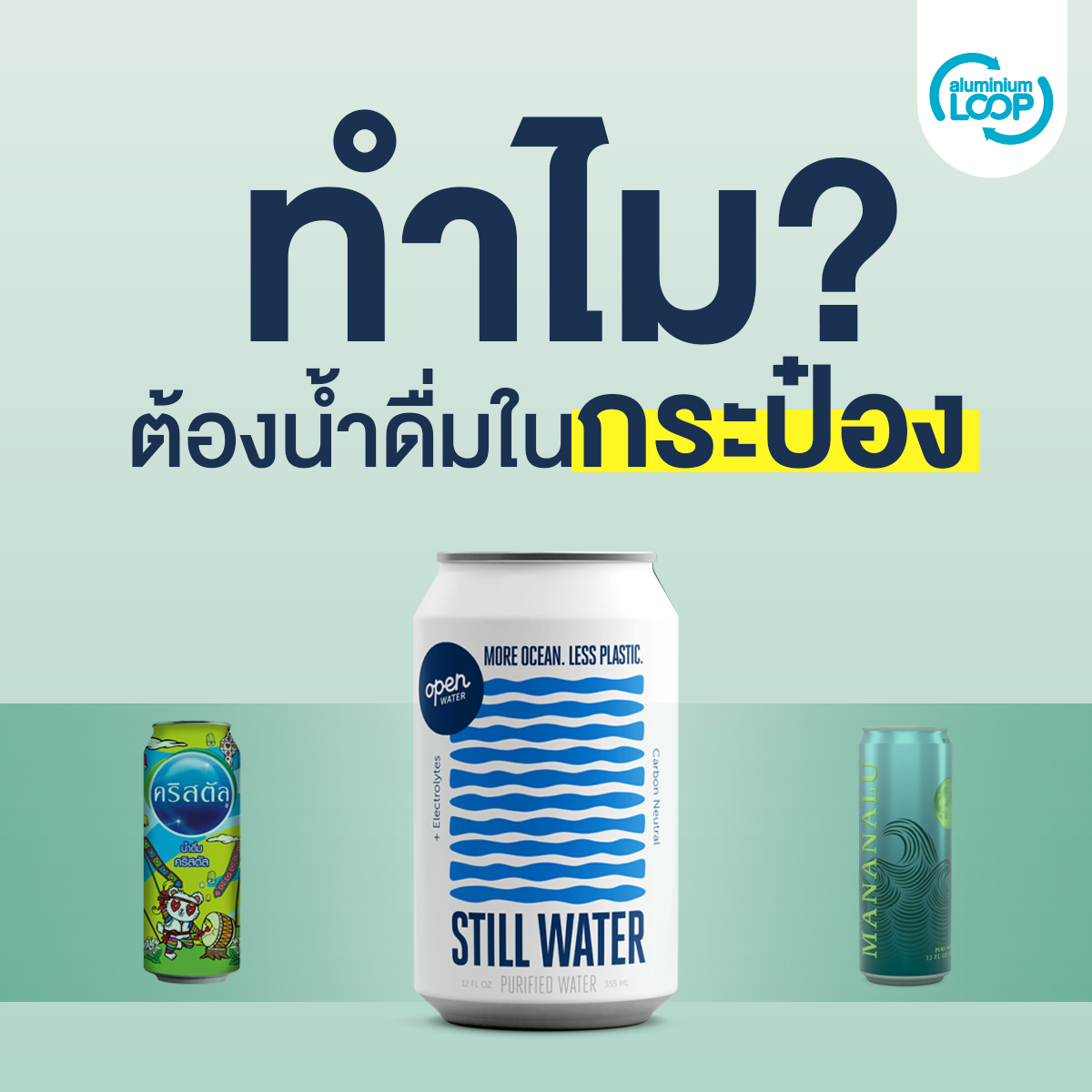
Why Canned Water?
Apart from plastic bottles. There are other alternative packaging options for bottled water. Like aluminium cans which are becoming a trend abroad.
Nowadays, environmental issues are raised to a global level, it cannot be denied that we’re all contributing to these problems!
And from the impacts that occur, whether it’s waste issues, pollution in water and air, or changes in global climate, all of these directly affect everyone. This has led to a shift in consumer demand towards seeking products that are more environmentally friendly, in an effort to minimize the negative impact of consumption on the environment.
As consumers are starting to change their perspectives, what are the producers doing in response?
Aluminium Loop invites readers to find answers in an interview with Mr. Napadol Sivabutr, Chairman of the Packaging Management Mechanism Development at TIPMSETIPMSE Thailand Institute of Packaging and Recycling Management for Sustainable Environment , which operates under the Federation of Thai Industries. Their aim is to advocate for everyone to separate used packaging from other waste to reduce the volume of used packaging nationwide in a safe and appropriate way under the concept of “Packaging is not waste,” by separating before disposal.
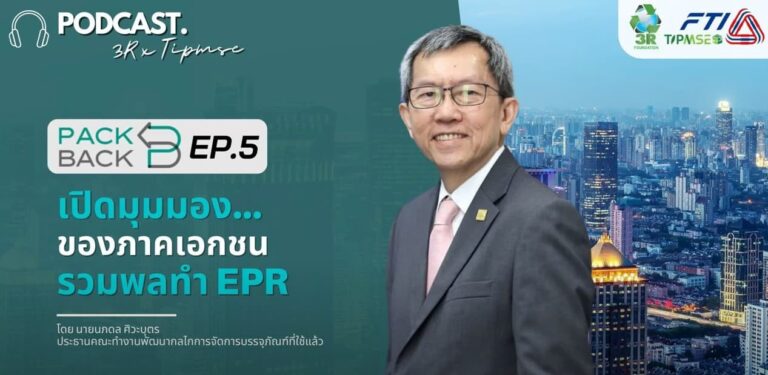
The waste generated today comes in various types, including food waste, hazardous waste, infectious waste, and packaging waste, etc. Packaging waste, in particular, is one of the major contributors to the waste stream, and the Thai industrial sector is becoming more aware of this issue. It is seen as a responsibility of producers to address the packaging waste problem.
This awakening has also been driven by changes in consumer preferences, with an increasing demand for environmentally-friendly products. As a result, the private sector and producers have started paying more attention to environmental issues by developing products and packaging that are eco-friendly.
Many related sectors, from material producers to waste management authorities, all agree that it’s time to rethink. Everyone is eager to see the private sector take a leading role in driving changes in packaging waste management because relying solely on the government won’t suffice.
The involvement of the private sector in leading can bring about significant changes because the private sector can develop environmentally-friendly packaging through new designs. This can lead to improvements and increased efficiency in waste management processes. However, the government also plays a crucial role by providing support in terms of tools and necessary regulations that need legal backing.

The principle that the Thai private sector is currently using to drive packaging waste management is “EPR (Extended Producer Responsibility)” which involves extending the producer’s responsibility to various stages of the packaging life cycle. Unlike the traditional approach, where producers only manufacture and sell their products, and the responsibility ends there. But EPR expands the producer’s responsibility to cover post-consumer stages. Under EPR, producers must consider the full environmental impact, including material choice, product design, distribution, collection, and facilitating recycling or reuse, from the manufacturing phase to post-consumer use.
However, in Thailand, the EPR principle has not yet been strictly enforced but remains voluntary. This is due to various factors, such as consumer behavior, the readiness of producers, and the availability of necessary infrastructure, which all need adjustments to align with EPR. However, the timeline for implementing the EPR principle in Thailand is not considered excessively delayed, and we are fortunate to have some existing systems in place, such as the informal waste sector and waste aggregator, which does not exist in other countries that have implemented EPR systems typically. This means that we are not starting from scratch, but there is still work to be done. Moving forward, it is crucial to engage in discussions and collaboration with all stakeholders of all sectors, as changes may impact those already involved in the existing processes. It is necessary to improve workflows so that everyone can work together effectively. Additionally, there must be supportive laws for the informal sector to ensure that everyone benefits equally from the EPR approach.
One important thing in applying the EPR principle is to first understand its advantages, disadvantages, and proper implementation methods. Therefore, over the past year, TIPMSE and those involved have been trying to understand the EPR process in terms of principles, without delving into the various steps. However, it is fortunate that the Thai government has adopted the BCG policy (Bio Economy, Circular Economy, Green Economy), in which EPR is a significant part of the Circular Economy that needs to be implemented together. The government has also acknowledged EPR at the policy level, and it is currently in the data gathering and encouraging phase for increased private sector involvement.
EPR needs to be managed by the private sector, with the government providing support and facilitating, including setting regulations and defining the scope of work.
In the end, what’s most important is to adjust the EPR principle to fit the Thai social context, which varies from place to place. Bangkok is different from other provinces, this is the hardest and most challenging part. It will probably take about 3-5 years from now on.
To enhance the production of sustainable packaging, there might be an EPR fee based on how easy or hard it is to recycle the packaging waste. This is to encourage the development of more easily recyclable packaging. Nowadays, many companies are doing packaging design analysis to understand the end-of-life of their packaging – where it goes after use and whether it can be recycled.
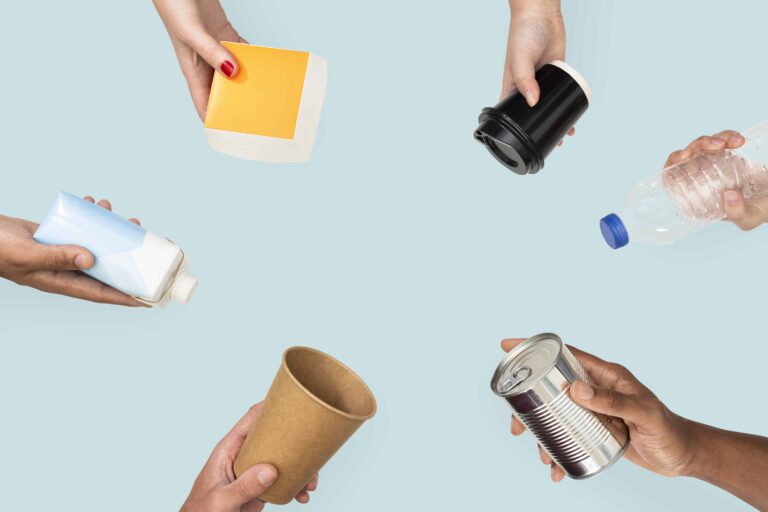
Regarding the public sector…
Another challenge is changing the mindset and behaviors of the people when it comes to post-consumption waste management. The majority of household waste is thrown away mixed, devaluing materials that might otherwise be valuable because they get dirty. It’s crucial to engage with the public to make them understand what they gain from separating waste from their homes. If they don’t, what the consequences are, and ultimately persuade a change in mindset and behavior.
When it comes to changing consumer waste disposal habits at home, sometimes laws are not the most sustainable solution. If everyone still thinks that it is the government’s responsibility, that mindset won’t change. On the contrary, we must think that everyone is part of a process that can work, with the government’s role being to facilitate the necessary equipment, like providing different colored bins for various types of waste.
Mixing all our waste together means some valuable wastes might get dirty and become hard to separate. Waste management authorities have a tougher job because of this. So, separating waste right after consumption is the answer to make this job easier.
Enforcing laws should be more of a last resort, and laws are there for the few who really don’t care. We believe that most people are ready to change; but they don’t have the tools or guidance to help them do it.
The Pack Back Project… Taking back packaging for a sustainable future is a part of driving EPR in pilot areas.
After studying EPR to implement in Thailand for a while, there has now been a start in experimenting with EPR in pilot areas in Chonburi province at Saensuk Municipality, Ban Bueng, and Ko Sichang. These areas have their unique characteristics and are diverse, including being tourist destinations and industrial towns, as well as having educational institutions. This trial in these areas aims to learn from the actual implementation of EPR principles, and we will have to wait and see what the results will be…
Listen to the full interview at https://www.youtube.com/watch?v=CDi2DEJCO3o
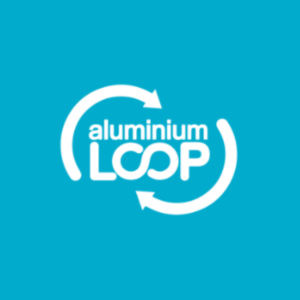

Apart from plastic bottles. There are other alternative packaging options for bottled water. Like aluminium cans which are becoming a trend abroad.
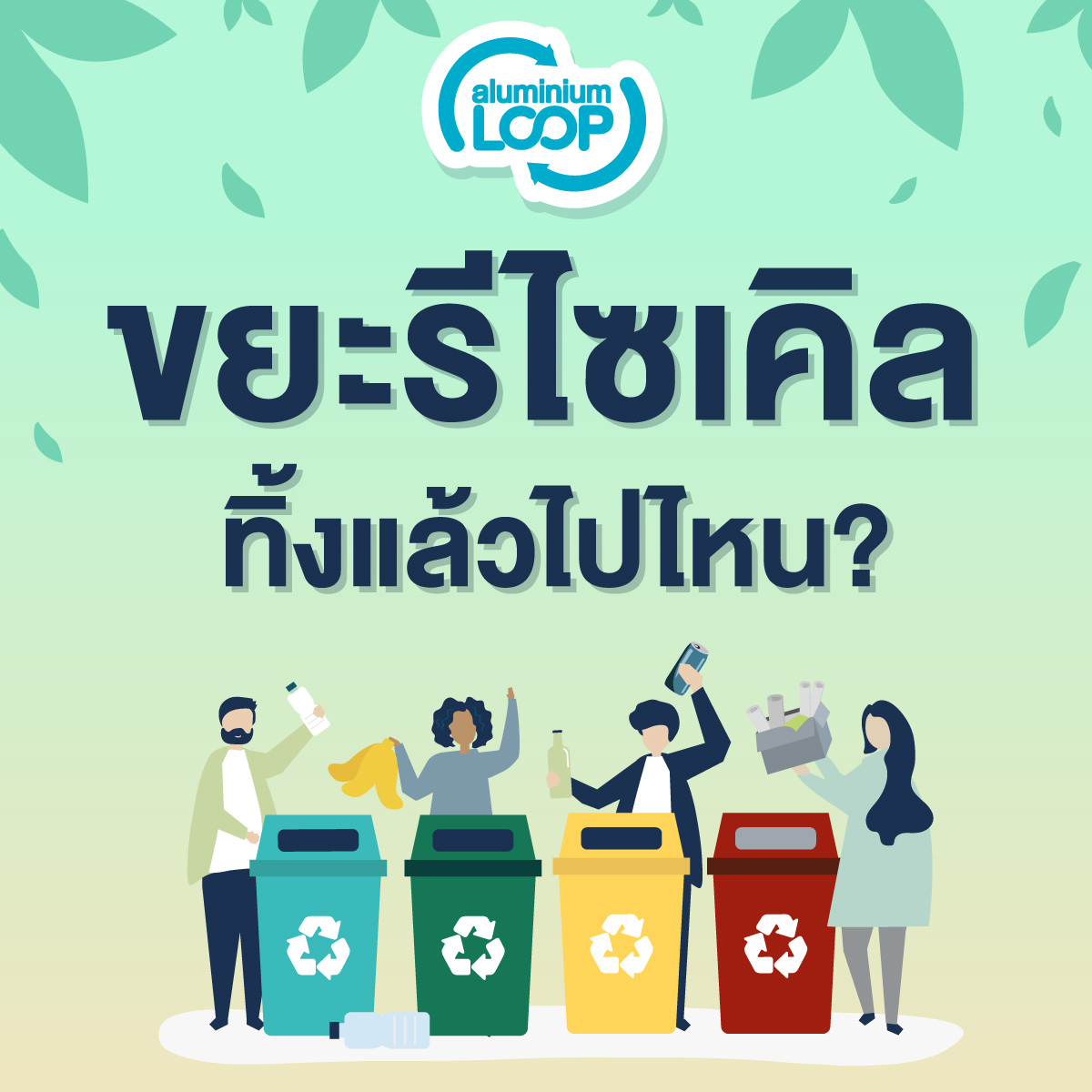
Have you ever wondered what happens to trash after you throw it away? Can it be recycled? Let’s follow the journey of recyclable waste together.
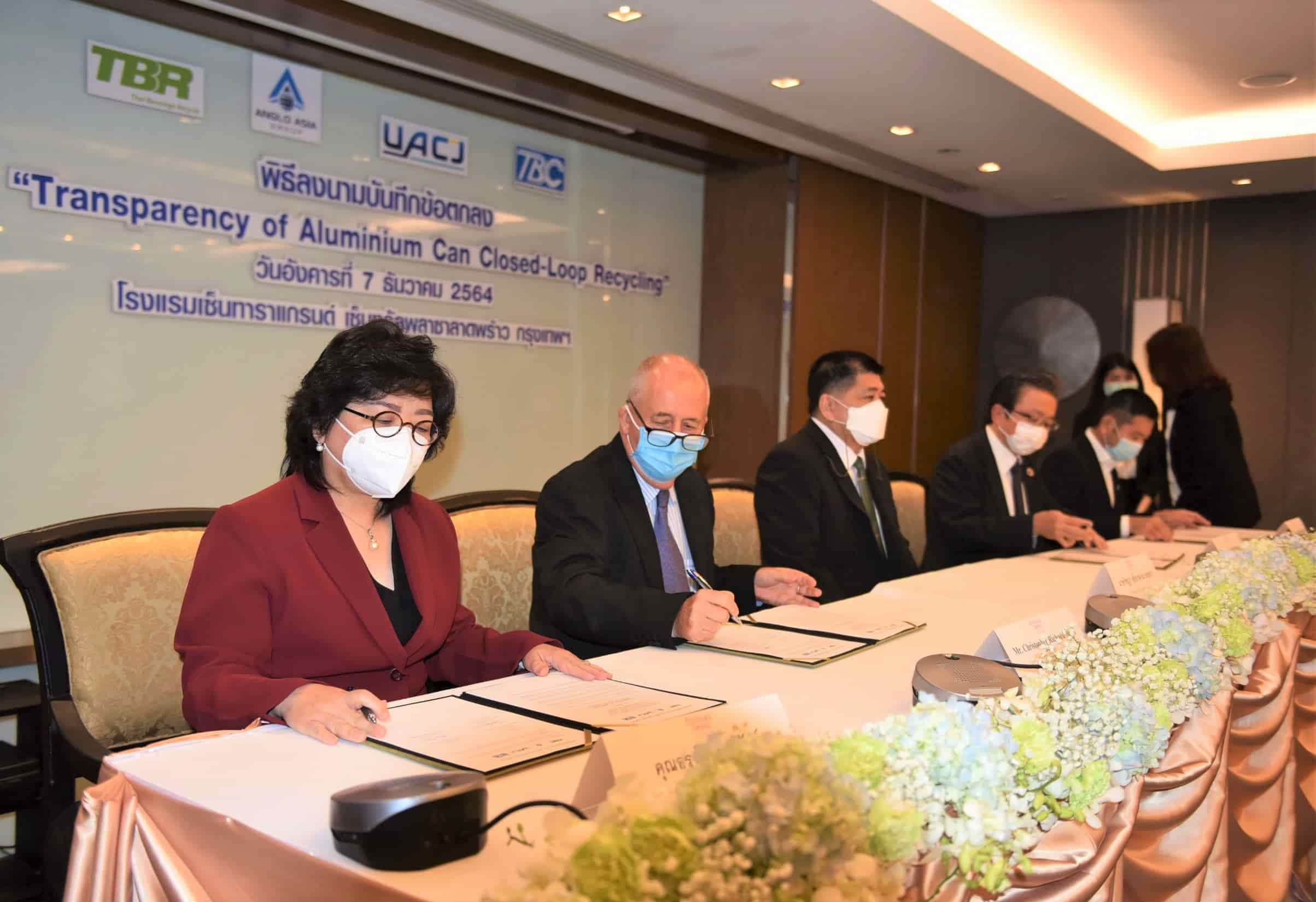
MOU signing for “Transparency of Aluminium Can Closed-Loop Recycling” supports the creation of a comprehensive recycling system for used aluminium cans in Thailand.